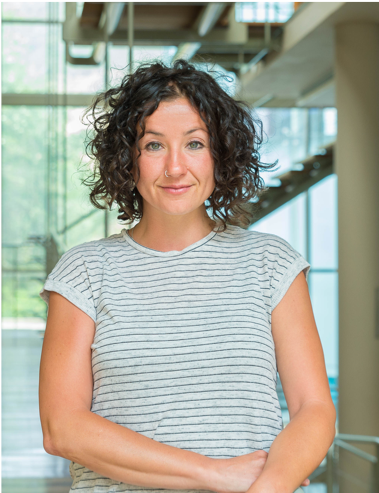Q&A with new Full Member Associate Professor Elisa Nemes

Producing world-class excellence at the IDM is a collaborative effort. Here we're highlighting those who have had a notable impact on our work by upholding the values of the Institute.
1. Why did you get into research?
I am very curious and enjoy understanding how things work. I wanted to contribute to something that I found meaningful and that could positively impact others. I believe that education and health are some of the critical pillars to build a better society, therefore I dedicated my work to medical research in an academic environment.
2. Why specialise in TB immunology?
Tuberculosis (TB) is a global health emergency that disproportionally affects poor and vulnerable individuals, and novel interventions are desperately needed to stop the epidemic. A better understanding of how to harness our natural defences against TB will help designing novel vaccines and immunodiagnostics.
3. What would you like people to know/understand that isn’t necessarily common knowledge?
The interaction between Mycobacterium tuberculosis (the pathogen that cause TB) and its human host is incredibly complex and can result in a “spectrum” of disease, which goes from being completely healthy despite infection to active disease, and everything in between. Despite being preventable and curable, TB remains a major cause of infectious disease-related deaths globally.
4. How does your work practically impact society?
I hope that my work will contribute to the development of novel interventions against TB, which one day may have a positive impact on society.
5. Practically – what does this accolade, becoming a Full Member, mean for your work?
It is an important step in my career and I hope it will enhance opportunities to collaborate with other members.
6. What do you hope to achieve, career-wise, in the long term?
I hope to see a new vaccine against TB rolled out.
7. What do you enjoy about your work?
It’s never boring.
8. Advice to early-career researchers looking to follow in similar footsteps?
Be passionate about what you do. Patience and perseverance are essential. Never work alone: great science is built on excellent teams and collaborations. Keep an open mind and speak your mind.
One for the kids: Explain what you do to a five-year old:
I try to understand how the body fights off a germ that causes tuberculosis, a very dangerous disease. And how we can teach the body to fight so well that we won’t get sick from the disease anymore.
Read more about Elisa here.
I am very curious and enjoy understanding how things work. I wanted to contribute to something that I found meaningful and that could positively impact others. I believe that education and health are some of the critical pillars to build a better society, therefore I dedicated my work to medical research in an academic environment.
2. Why specialise in TB immunology?
Tuberculosis (TB) is a global health emergency that disproportionally affects poor and vulnerable individuals, and novel interventions are desperately needed to stop the epidemic. A better understanding of how to harness our natural defences against TB will help designing novel vaccines and immunodiagnostics.
3. What would you like people to know/understand that isn’t necessarily common knowledge?
The interaction between Mycobacterium tuberculosis (the pathogen that cause TB) and its human host is incredibly complex and can result in a “spectrum” of disease, which goes from being completely healthy despite infection to active disease, and everything in between. Despite being preventable and curable, TB remains a major cause of infectious disease-related deaths globally.
4. How does your work practically impact society?
I hope that my work will contribute to the development of novel interventions against TB, which one day may have a positive impact on society.
5. Practically – what does this accolade, becoming a Full Member, mean for your work?
It is an important step in my career and I hope it will enhance opportunities to collaborate with other members.
6. What do you hope to achieve, career-wise, in the long term?
I hope to see a new vaccine against TB rolled out.
7. What do you enjoy about your work?
It’s never boring.
8. Advice to early-career researchers looking to follow in similar footsteps?
Be passionate about what you do. Patience and perseverance are essential. Never work alone: great science is built on excellent teams and collaborations. Keep an open mind and speak your mind.
One for the kids: Explain what you do to a five-year old:
I try to understand how the body fights off a germ that causes tuberculosis, a very dangerous disease. And how we can teach the body to fight so well that we won’t get sick from the disease anymore.
Read more about Elisa here.
